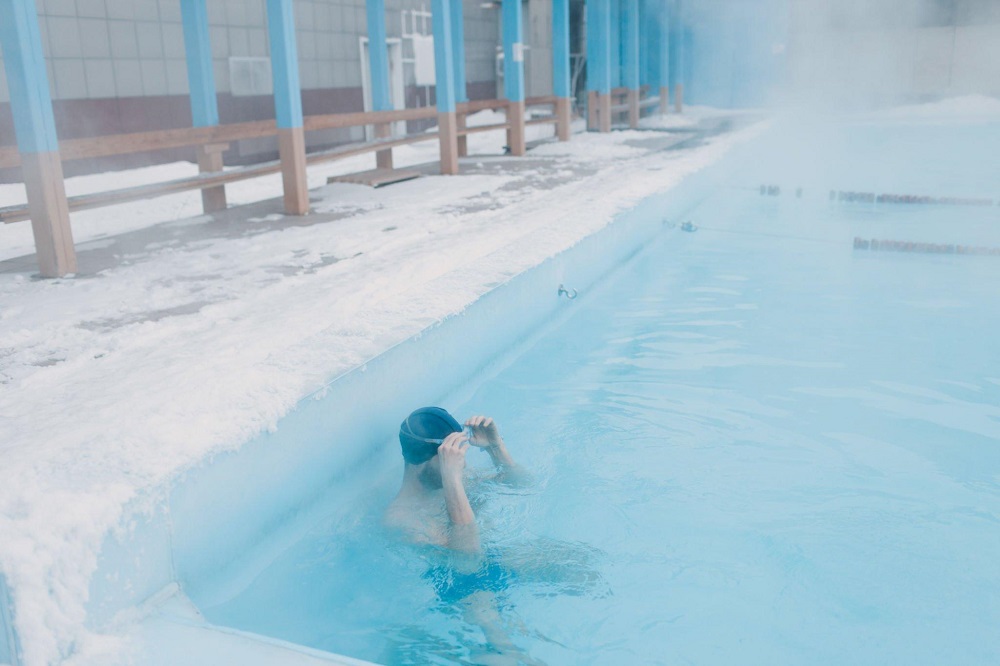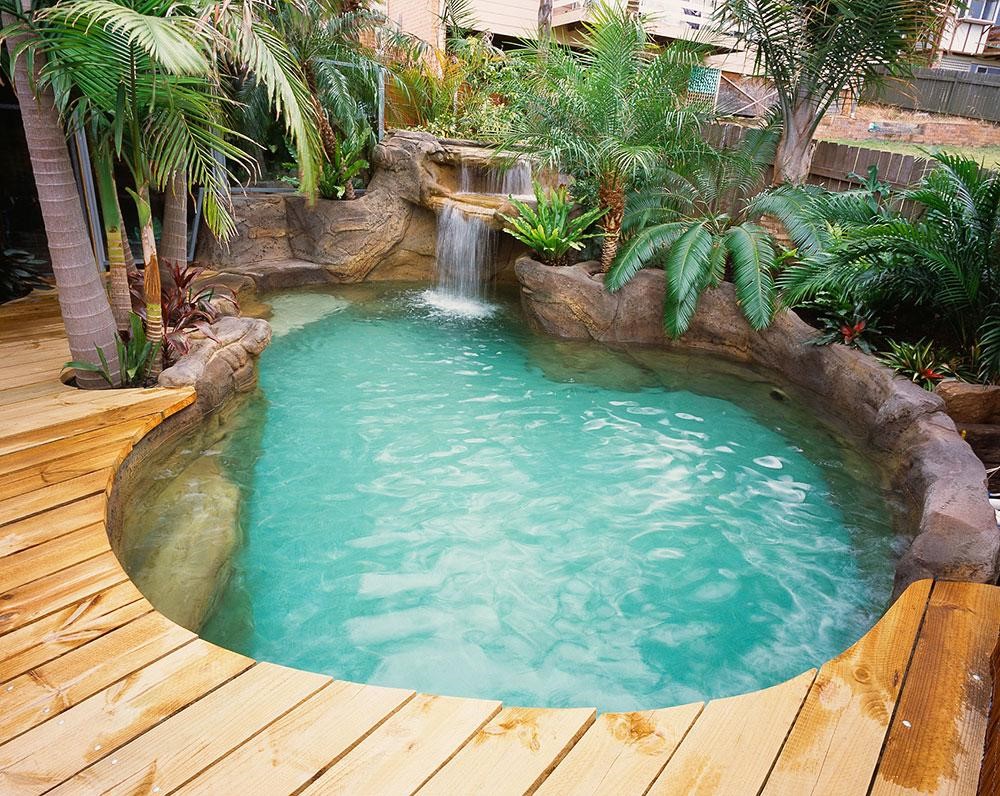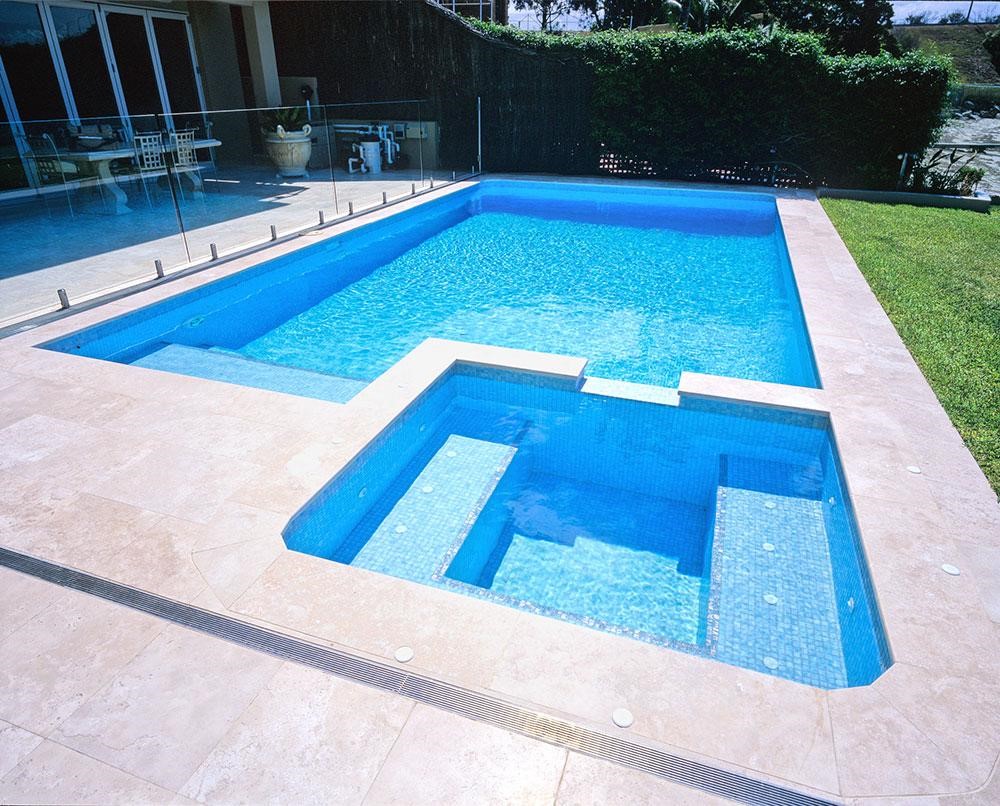The Mental Health Benefits of Winter Swimming
August 8, 2023
While jumping into a pool of chilly water or embracing a cold shower might seem strange, many people have discovered the significant mental health benefits resulting from a winter swim. Of course, taking a dip in some cold water isn’t a cure-all, but it has many benefits for those willing to try it.
So, if your swimming pool lies dormant in the winter months because you think it’s too cold for a swim, think again. From giving you a dopamine rush to reducing cortisol levels, there are plenty of ways a winter swim can help improve your mental health and well-being.
Here are some reasons you should consider rolling back the swimming pool cover and taking a dip, even when it’s cold.
Improving your mood
Anybody suffering from mental health concerns such as depression or anxiety understands the fluctuations in mood you can experience. Perhaps more important is the fact that you often feel relatively low.
When you immerse your body in cold water, it increases the release of endorphins and also increases your dopamine levels. Dopamine is basically a chemical in your body that makes you feel good. So, when you swim in cold water and experience that dopamine hit, it can be an instant mood improver.
In general, any exercise boosts your dopamine levels, even if you’re not swimming in cold water. However, the combination of the two activities can significantly affect your overall mood.
Natural pain relief
Most people have used an ice pack on a sprain or other type of injury. But have you thought in detail about why you do this? In short, it’s because the cold from the ice helps reduce inflammation. It also reduces pain levels, almost numbing the affected area. So, can you imagine dunking yourself in cold water for pain relief all over your body?
Cold-water swimming is excellent for those suffering from chronic pain. While this isn’t an immediate mental health benefit, reducing pain naturally improves your state of mind. You don’t need to suffer from a mental health issue to enjoy the pain relief from cold water. So, if you have pain but are still able to take a gentle swim in your plunge pool, you’ll see an almost instant benefit.
Decrease your stress levels
Stress is one of the biggest issues facing many people today. We learn more about stress and its impact on the human body every year, and the results are obvious: stress isn’t good for anybody. Aside from that little bit of pressure that pushes you to get tasks done on time, stress is generally linked to a whole range of health concerns.
Stress is the most common symptom of all mental health concerns. When you break it down to a chemical reaction in your body, stress is ultimately caused by too much cortisol, and those with high cortisol levels are likely to experience more stress than others.
Winter swimming can reduce cortisol levels and, therefore, reduce stress. Most people who swim in cold water report an immediate calming effect after their swim, and repeating this regularly can have far more long-lasting effects.
Improved resilience
Resilience refers to your ability to deal with challenging situations. In straightforward terms, think of it like a boxer’s ability to get back up after being hit by an opponent. Resilience is an important part of everybody’s life, whether you’re a professional athlete or a regular person. You can do a lot of study and build your resilience, but for many people, there’s only one way to do it: by exposing yourself to more challenging situations and working through them.
Nobody would suggest that swimming in cold water is easy. In fact, the initial fear of immersing yourself in cold water is enough to stop some people. The first time you dunk your head under, you may want to get out, too. But resilience is about working through the situation and coming out of it stronger and more capable of dealing with challenging conditions in the future.
The simple act of swimming a few laps in cold water can help you build resilience, both physical and mental.
A sense of achievement
Since we’ve just mentioned how difficult it can be to swim in cold water for the first time, it brings us to another point. Cold water swimming is most certainly a significant achievement.
The sense of achievement gained from completing a difficult task benefits your mental health. For people suffering from depression or other conditions, it can be extremely daunting to step outside of your comfort zone. So, when you do, you can feel a great sense of achievement at the end. This feeling is often enough to inspire you to extend yourself further and is a vital step in your recovery.
Be more alert
Diving into cold water isn’t an easy thing to do, but it is certainly invigorating. The feeling of invigoration comes from a rise in adrenaline, increased heart rate and more oxygen intake. You may only experience this adrenaline rush while in the water, but it does lead to you being instantly more alert. Cold water can be dangerous, too, with a risk of hypothermia, so your body automatically becomes more alert in dealing with the situation.
Once you practice winter swimming more regularly, your heightened alertness continues throughout the day, making concentrating and getting things done easier.
Increased blood circulation
There’s a reason why every doctor, psychologist or counsellor in the world recommends exercise to people struggling with mental health conditions. Exercise increases cardiovascular activity and improves circulation, sending more blood flow to the brain. Another way to achieve better circulation is to subject yourself to colder conditions.
It seems counterintuitive because you’d think that cold conditions would harm your circulation. Instead, being in a body of cold water sends a signal to your brain that your body needs to heat up. Your body responds by increasing warm blood flow to all parts of your body, including your brain. As such, it can greatly help in reducing the symptoms of anxiety, stress and depression.
Even more importantly, better circulation means more nutrients are distributed through your body, and the removal of toxins is enhanced.
A better night’s sleep
While there isn’t a great deal of science behind this next point, many people who swim in cold water regularly report improved sleep. As far back as 2020, Associate Professor of Psychiatry at McGill University, Rob Whitley, said that winter swimming can help to “regulate sleep, increase mood and provide some kind of collective meaning and purpose.”
There is also the fact that physical activity tires you out, and if you feel less stressed in general, you’ll sleep better. By stimulating the parasympathetic nervous system, you can also encourage your body to rest and repair, another factor that aids in an improved night’s sleep.
Routine and discipline
Building a solid routine is important when you suffer from a mental health condition. It’s easy to let your feelings take over, often leading to extended periods of inactivity, which is never good for anybody. However, if you decide to start your day with a brisk swim in some chilly water, you get all of the other benefits, as well as the establishment of a routine.
It takes discipline to immerse yourself in cold water and even more to stay in there and swim a few laps. Again, growing your level of discipline is extremely helpful when it comes to doing all the other things you should be doing to improve your condition. Not to mention the fact that swimming in cold water each morning sets you up for the day ahead. During a recent winter solstice swim in Gippsland, Victoria, one swimmer reported a feeling of positivity, knowing they could handle the rest of the day because they’d already completed something that was very difficult.
Practising mindfulness
Finally, let’s consider the art of practising mindfulness. It’s a big part of any mental health treatment plan and encourages you to be more present in the moment. In simple terms, you try to reach a state where you can thoroughly enjoy your moment without worrying or stressing about other parts of your life.
Cold water swimming is the ultimate mindfulness training technique. By immersing yourself in cold water, it’s very hard to think about anything other than the temperature. In that sense, you remain completely present in the moment, and your mind doesn’t have the luxury of wandering.
Stay safe while winter swimming
As with any physical activity, you should check with your doctor before commencing. Cold water swimming isn’t for everybody, particularly those with heart conditions. Always ensure you practise cold swimming in a safe environment, such as your family pool. Make sure there is help available if you get into trouble, and you can leave the pool and warm up safely if it gets too cold.
Contact Blue Haven today for the perfect winter pool setup at your home.
Read More:














